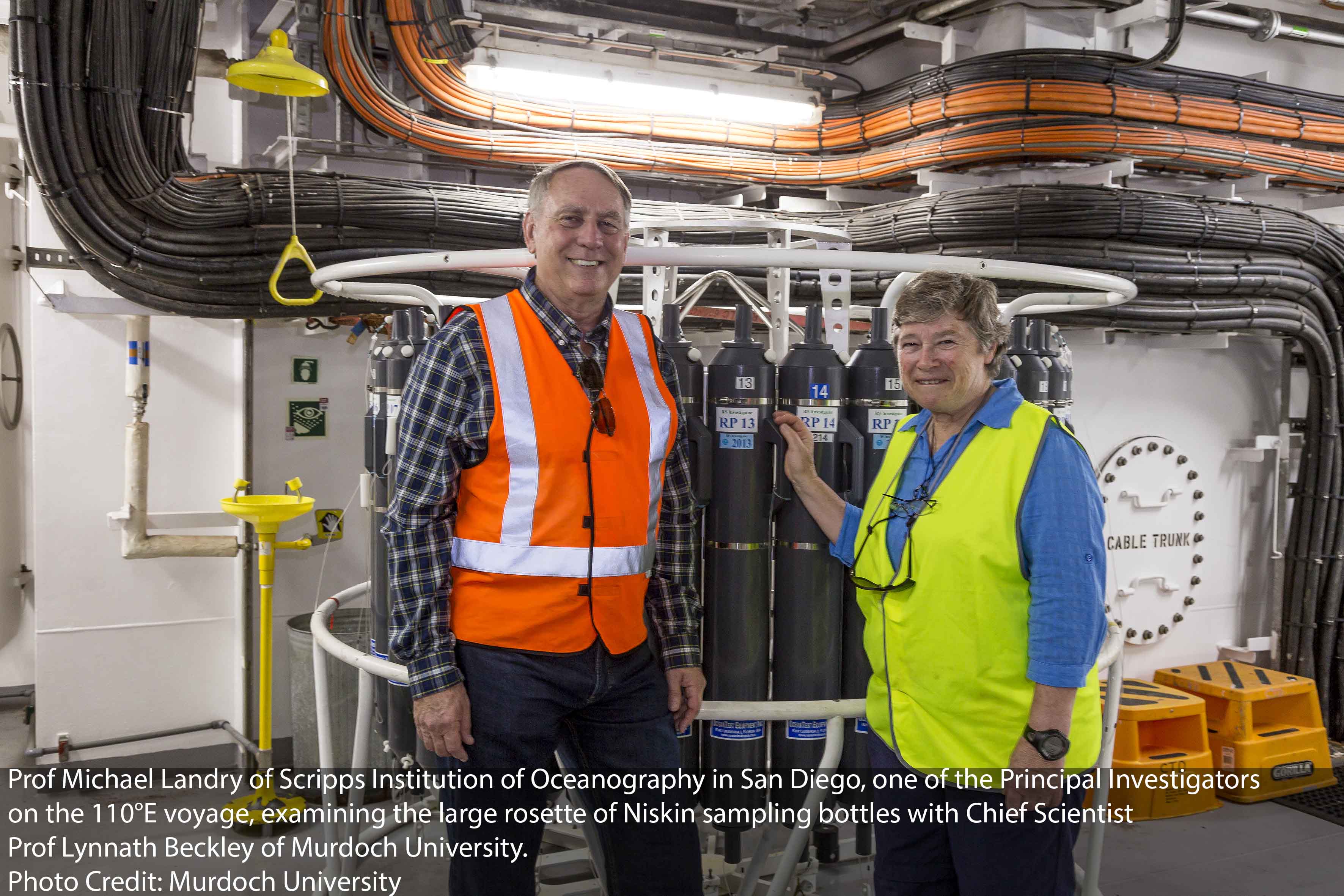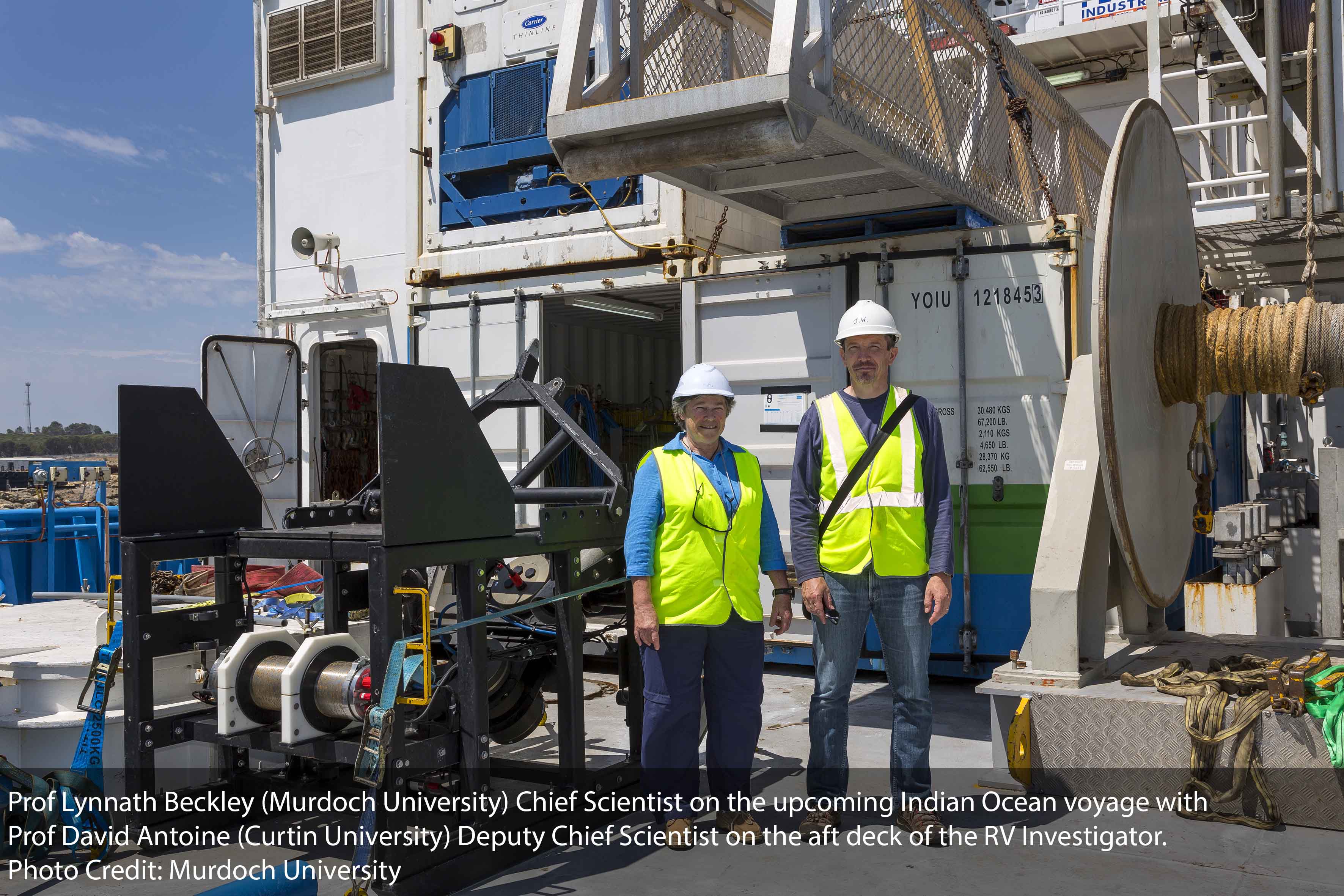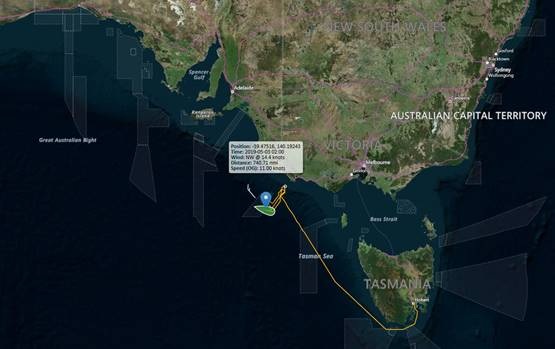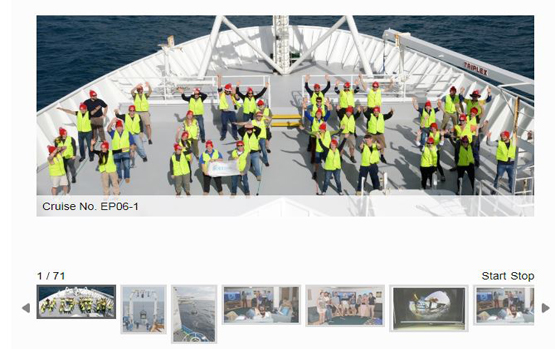Around 60 years ago, marine scientists aboard ships from 14 countries combined their efforts to explore the largest unknown area of earth, the deep waters and seabed of the Indian Ocean. This expedition generated a wealth of information and formed the basis of our scientific understanding about the Indian Ocean basin. So why do we need to do it all again?
An Australian voyage retracing part of the historic first International Indian Ocean Expedition expects to reveal the effects of climate change on the physics, chemistry and biology of the waters of the south-east Indian Ocean.
Professor Lynnath Beckley from Murdoch University is the Chief Investigator on this voyage of the second International Indian Ocean Expedition (IIOE2) which will take place next month offshore of Western Australia.
Forty marine scientists and technicians from 18 institutions will spend 32 days at sea on the CSIRO research vessel Investigator, sampling along the 110°E longitudinal meridian in the deep ocean, approximately 500-600 km offshore of the continent.
Professor Beckley said retracing the journey would provide a unique snapshot into how much the ocean and marine life had changed over time.
"There is published scientific evidence that, in the past five decades, there has been surface water warming of over one degree Celsius in the south-east Indian Ocean" Professor Beckley said.
"There are also indications that the deepest, coldest waters in the ocean, those that are formed around Antarctica, are rapidly warming and freshening. These changed waters are moving towards the Indian Ocean and will have huge ramifications for global ocean circulation patterns.
"This expedition will provide some of the first ecological data about the oceanic food web in several of Australia's recently established south-west and north- west marine parks, which extend out to the edge of Australia's Exclusive Economic Zone."
The researchers will investigate the whole oceanic ecosystem including physical processes, bio-geochemistry, nitrogen sources, microbes, primary production, zooplankton, mesopelagic fishes, food webs and whales.
"Essentially, our multi-disciplinary team will be investigating everything we can from physics to fish with some whales on the side!" Professor Beckley said.
"Technology has advanced significantly since the first expedition and we now have the opportunity to discover how microbes contribute to the functioning of the Indian Ocean, which was not able to be studied last time because the genomics techniques were not yet developed".
"We will also be checking the accuracy of satellite remote sensing of ocean colour by measuring levels of chlorophyll and other pigments in the water column. This will help us evaluate production by algae and carbon sequestering on an ocean basin scale."
A team of scientists and postgraduate students from seven Australian universities - Murdoch University, Curtin University, University of Tasmania, University of Technology Sydney, Macquarie University, University of New South Wales and University of Western Australia - will accompany Professor Beckley on the 2019 expedition. Researchers from the University of Auckland, University of Maryland Center for Environmental Science, Scripps Institution of Oceanography, Spanish National Research Council, Alfred Wegener Institute, NOAA, CSIRO, Australian Institute of Marine Science, Centre for Whale Research (WA) Inc., and the Australian Department of Defence will also be conducting research on board the voyage.
The voyage is a major part of Australia's contribution to the UNESCO-led IIOE- 2 mission and the research is supported by a grant of sea time on RV Investigator from the CSIRO Marine National Facility.
The voyage leaves on 14 May from Fremantle and returns on 14 June. More information on the second International Indian Ocean Expedition can be found at https://iioe-2.incois.gov.in/
Media enquiries: Pepita Smyth 9360 1289/0417171551 / p.smyth@murdoch.edu.au






